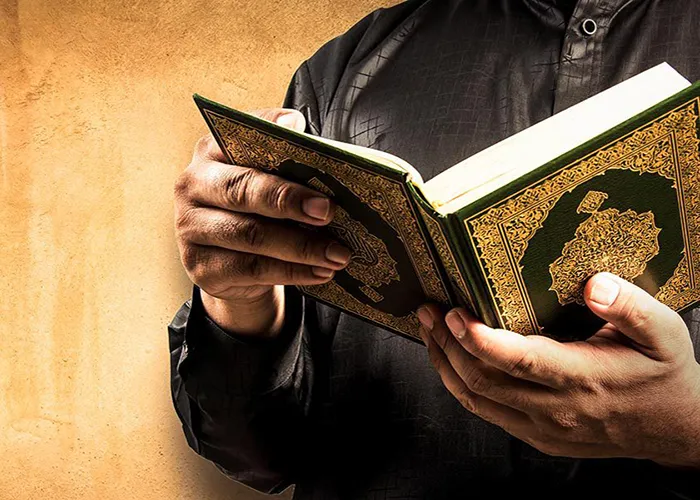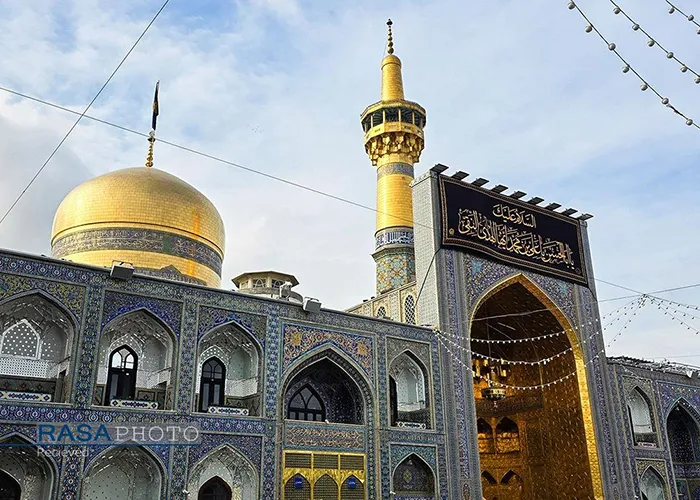Ayah Of The Week – Volume01 Issue21
Embracing Diversity and Righteousness: Qur’anic Guidance on Tolerance and Mutual Respect
November 16 is observed as the International Day for Tolerance, a day dedicated to promoting respect and understanding across different communities. The Qur’an provides numerous verses that underscore the importance of honouring those who are different from us, presenting these differences not as flaws, but rather as opportunities for reflection and learning. One of the clearest messages in this regard can be found in the Qur’an, Surah Al-Hujurat (Chapter 49), Verse 13, which states:
يَآ أَيُّهَا النَّاسُ إِنَّا خَلَقْنَاكُم مِّن ذَكَرٍ وَأُنثَى وَجَعَلْنَاكُمْ شُعُوباً وَ قَبَآئِلَ لِتَعَارَفُواْ إِنَّ أَكْرَمَكُمْ عِندَ اللَّهِ أَتْقَاكُمْ إِنَّ اللَّهَ عَلِيمٌ خَبِيرٌ
“O mankind, indeed, We have created you from male and female and made you peoples and tribes that you may know one another. Indeed, the most noble of you in the sight of Allah is the most righteous of you. Indeed, Allah is Knowing and Acquainted.”
This verse conveys powerful ethical and educational messages for various groups within society. Below, some of these messages have been elaborated upon, categorised for youth, parents, and Muslim communities.
Educational Messages for Youth
1. Respecting Differences Without Imitation
Differences among people should be respected, but they need not be blindly imitated. Often, behaviours, beliefs, and values that you observe in others may not be suitable or right for you. This verse reminds young people to avoid following others without discernment and to think critically about what they choose to adopt.
2. Differences as Catalysts for Thought and Learning
The verse’s phrase “that you may know one another” (“لِتَعَارَفُواْ”) suggests that differences provide a rich ground for reflection, understanding, knowing, and learning. By recognising and exploring human diversity, youth can broaden their perspectives, appreciate various cultures, and develop a deeper understanding of humanity.
Educational Messages for Parents
1. Teaching Children to Respect Individual Differences
Parents have a duty to instil in their children the value of respecting individual differences. Rather than fostering a sense of uniformity, it is essential for parents to help their children appreciate each person’s uniqueness and learn that it is acceptable to be distinct from others.
2. Teaching Children to Judge Based on Inner Qualities, Not Appearances
The phrase “the most noble of you in the sight of Allah is the most righteous of you” (“إِنَّ أَكْرَمَكُمْ عِندَ اللَّهِ أَتْقَاكُمْ”) highlights that external appearances do not determine a person’s worth. Instead, a person’s inner qualities and righteousness (Taqwa) are what truly matter. Parents should teach their children that people should not be judged on their outward appearance, but rather on their character and integrity.
Educational Messages for Muslim Communities
1. Counteracting Pride and Prejudice
Some interpreters relate this verse to the preceding verses, which discourage ridicule and backbiting. These behaviours often stem from pride and a sense of superiority over others. By stressing that true nobility comes from righteousness and not from race or lineage, the verse encourages humility and discourages arrogance within communities.
2. Promoting Unity and Mutual Understanding
The call to “know one another” encourages communities to reach out, understand, and respect the diversity within and beyond their communities. For Muslim communities, this verse is a reminder to rise above superficial differences and unite on shared values. It serves as a call for open-mindedness, tolerance, and inclusiveness.
In essence, Surah Al-Hujurat, Verse 13, invites us to see diversity as a divine design meant to foster greater understanding and unity. It reinforces that our worth lies not in our backgrounds or appearances, but in our character and righteousness. This message is especially pertinent on the International Day for Tolerance, as it aligns with the universal aspiration to build a world where diversity is celebrated, and mutual respect prevails.
editor's pick
news via inbox
Subscribe to the newsletter.




